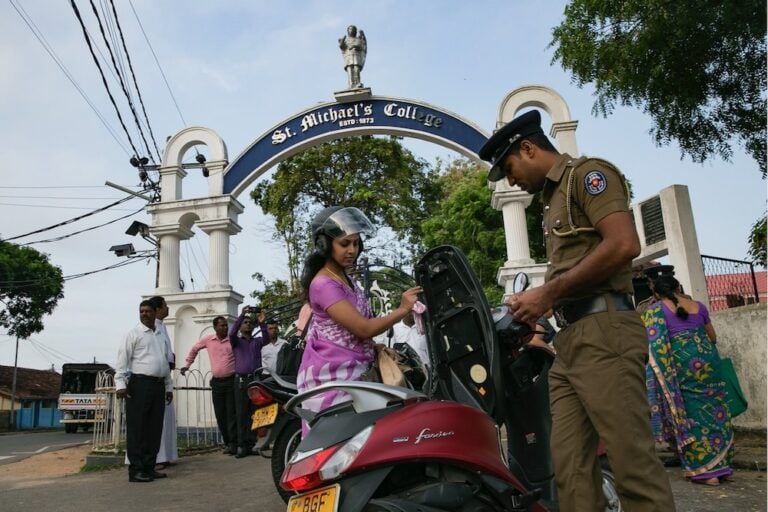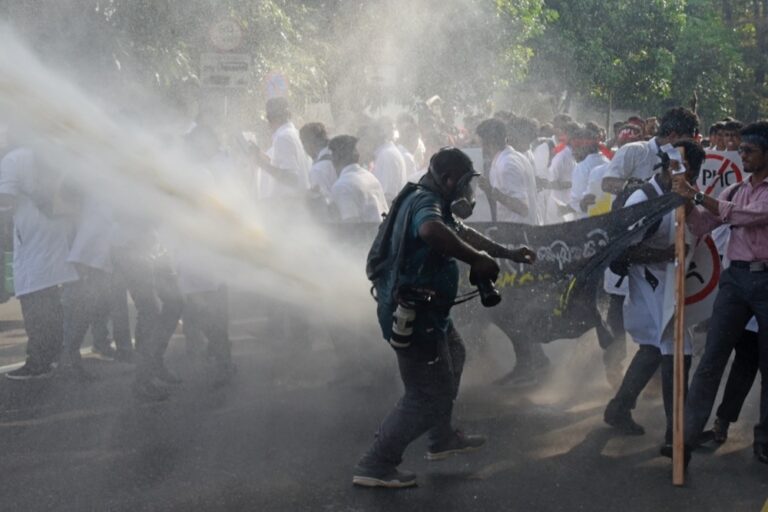The Free Media Movement said restricting freedom of speech is the death knell of democracy.
3 April 2022
The Telecommunications Regulatory Commission of Sri Lanka (TRCSL) announced on 3rd April that it has instructed service providers to block all social media usage in the country at the request of the Ministry of Defence. This was after the President declared a state of emergency and imposed a 36-hour nationwide curfew.
The Free Media Movement (FMM) strongly condemns all these anti-democratic actions taken by the government to stifle dissent and quell the voices of the people affected by its gross failure at managing the country’s economy, and urge the government, including the President, to take immediate action.
The Constitution of Sri Lanka recognizes freedom of expression, including freedom of speech and publication, as well as freedom of assembly and association, while the freedom to protest peacefully and display dissent has been widely interpreted by a number of Supreme Court rulings as part of freedom of expression. It also recognizes that this right includes the right to criticize the government and the head of state. The above actions taken by the government are arbitrary and violate all these rights.
Social media has now become an integral part of the people’s lives and an essential tool for enjoying the above rights. It has recently been used as a broad platform for professional media coverage, and to build a media fraternity that engages in professional media work through Facebook pages and YouTube channels. The arbitrary move by the government is a violation of the right to information of the people, as well as the trade union rights of the media community.
Social media has also played a significant role as a tool to protect human rights. On the night of 1 April, a group of people who introduced themselves as police abducted social media activist Anuruddha Bandara. He would have been in grave danger if not for the immediate intervention of civil society activists and the legal community through social media awareness. In addition, the government’s attempt to construct an interpretation of certain acts of violence in connection with the 31 March protest near the President’s residence was challenged by video footage shared on social media as well as eyewitness accounts. The social media activism also contributed to the mobilising of an unprecedented legal support, never seen before in history, for the protesters who were arrested.
It is our observation that the government resorted to the shameless act of blocking social media due to all these factors.
This is a cowardly act of turning back on democracy and the mandate received to a democratically elected government. It is impossible to expect a humane response from a government that uses violence and aggression to suppress and violate the rights of its citizens. The Free Media Movement appeals to all who believe and promote democracy to join hands individually and collectively to protect the lives of all citizens and to protect and promote human rights, including our fundamental rights, in these difficult times, and to rally in unison in the name of humanity.
The Free Media Movement promotes ‘Freedom with Responsibility’, and urges all citizens to keep this in mind at all times during these dark and challenging times. The Free Media Movement, which constantly encourages agitations and the struggles to protect and secure democratic rights, including the fundamental rights of the people, reiterates in the strongest possible terms that it is wholeheartedly committed to promoting and protecting these goals.
– Executive Committee of the Free Media Movement.



